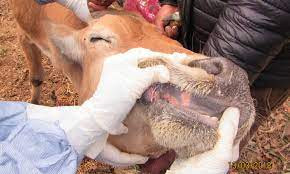
If creatives are not extra cautious, the internet could easily ravage their potential and limit their opportunities for growth.
Social media has undeniably transformed the creative sector across the globe.
Platforms such as Facebook, YouTube, TikTok, Instagram Live, Twitch and Twitter Spaces have created multi-billion-dollar industries that continue to expand.
For Zimbabwean artists, both at home and abroad, these platforms have provided fresh avenues for exposure and revenue.
Even though Zimbabwe is not formally admitted into monetisation programmes on most of these platforms, local creatives have found ways around the restrictions.
Many open accounts using foreign credentials or rely on third-party services to earn an income.
This determination shows resilience, but it also highlights structural disadvantages that place Zimbabwean creators at a disadvantage compared to their global peers.
At first glance, the digital landscape appears to be a blessing, an open field where anyone with talent can thrive.
- Mavhunga puts DeMbare into Chibuku quarterfinals
- Bulls to charge into Zimbabwe gold stocks
- Ndiraya concerned as goals dry up
- Letters: How solar power is transforming African farms
Keep Reading
However, beneath the opportunities lies a troubling reality.
A growing number of Zimbabwean content creators are turning to toxic drama, public fights and online insults in their desperate pursuit of views and trends.
Ethics are often abandoned in the chase for clicks. Nudity, profanity and sensationalism increasingly dominate timelines, threatening the creative industry’s integrity.
This trend damages not just individuals, but also the social fabric.
Content that normalises hostility erodes respect and empathy within communities.
Behind every keyboard is a human being deserving of dignity, yet the hunger for instant fame blinds many to the long-term harm done to audiences, communities and their own reputations.
Cancel culture makes matters worse.
Online mistakes often result in harsh rejection instead of dialogue.
What Zimbabwean creatives need is not more cancellation, but greater unity of purpose.
By uplifting one another instead of tearing each other down, they can build a stronger, sustainable creative community.
Ubuntu, the African philosophy of humanity and interconnectedness, reminds us that: “I am because we are.”
This must guide how Zimbabweans engage online.
There is an urgent need to invest in social media training and public relations for almost every brand and creative.
The internet is a global marketplace and understanding how to manage one’s image, engage audiences positively and avoid reputational pitfalls is now essential.
Proper training in digital communication and brand management can help creatives stand out for the right reasons while building long-term careers.
Social media can also be harnessed more positively through various collaborations.
Joint campaigns, virtual concerts, comedy skits and creative challenges can amplify visibility for everyone while fostering a culture of collective growth.
When artists promote each other’s work and share audiences, everyone benefits.
At the same time, creators should view social media not only as a personal stage but also as a tool for community building.
By telling positive stories, celebrating local cultural diversity and preserving traditions through local genres like Isichathamiya, Zimdancehall, Sungura, Rhumba, Tshovatshova and or Tshibilika music, Zimbabwean creatives can inspire pride and create meaningful content that entertains and educates.
Professionalising the use of digital platforms is equally important.
Consistency, planning, and quality help attract partnerships and sponsorships.
Instead of depending solely on viral content, creatives can build sustainable models through merchandise, workshops, collaborations and exclusive digital products.
Mentorship is also crucial. Established artists should guide upcoming ones, offering lessons on how to navigate online spaces responsibly and avoid exploitation.
Audiences, too, must play their part by rewarding creativity and authenticity rather than being enablers and exacerbating toxicity.
Most importantly, creatives must never lose sight of their humanity.
Social media should not strip away kindness, empathy and community spirit.
The values of Ubuntu, compassion, solidarity and respect, must stand at the heart of online interactions.
If content creation begins to prioritise unity over division, authenticity over drama and dignity over cheap thrills, the internet will serve as a bridge to opportunity rather than a trap of destruction.
The internet has immense power to amplify talent, but it also magnifies flaws.
For Zimbabwean creatives, the challenge is clear, that is to use digital platforms with ethics and purpose rather than allowing them to dictate and condone destructive behaviours.
The future of the creative industry depends not only on talent and technology but also on the values that guide those who shape its content.
If unity, compassion and authenticity can be prioritized, the internet will remain a tool for growth.
If not, it risks becoming the very trap that diminishes the creative potential of a generation.









